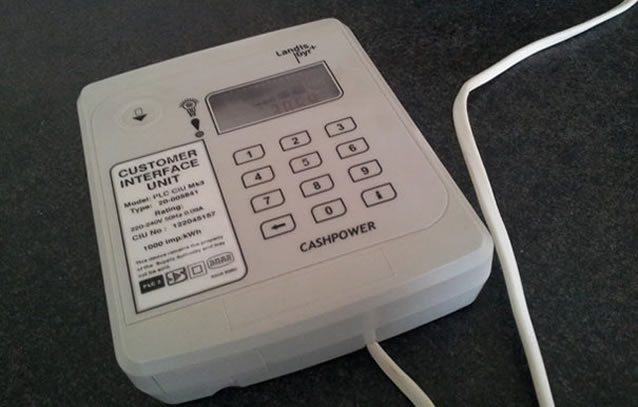Prepaid meters beef up ZEDTC coffers

 Golden Sibanda Senior Business Reporter
Golden Sibanda Senior Business Reporter
REVENUE from prepaid meters now accounts for 33 percent of Zimbabwe Electricity Transmission and Distribution Company’s income in a development that guarantees the utility reliable inflows to support operations.Chief executive Engineer Julian Chinembiri said in an interview ZETDC was now able to collect an average of $25 million monthly from prepaid meters.
He said the system had guaranteed steady inflows for the company.
Engineer Chinembiri said customers on prepaid metering were compelled to pay to have access to electricity, which had ensured the transmission and distribution entity is guaranteed of steady inflows each month.
“With prepaid we have a situation where power is paid for in advance and we are assured of getting revenue than in the past, with post paid,” he said.
Under the post-paid billing system, customers use power and pay later.
Eng Chinembiri concurred with sentiments by local bankers that while the company’s balance was not pleasing to look at, it remained one of the most attractive entities to do business with due to its consistent cash flows.
Engineer Chinembiri said a significant number of consumers of electricity on prepaid billing attempt to avoid disruptions of not paying and this situation has worked in ZETDC’s favour, as it is guaranteed of revenue.
“It means if we borrow, we are able to repay.”
Eng Chinembiri said about 33 percent of the firm’s revenue now comes from prepaid electricity sales.
Apart from assuring the utility consistent revenue inflows to run operations, fix breakdowns and replace damaged equipment, the company will also have more resources to enhance its transmission network.
Experience from other countries shows that a significant amount of power generated may be lost during the process of transmission and distribution due to poor systems such as broken power lines and fallen pylons.
The utility has over the years struggled to maintain and rehabilitate infrastructure due to shortage of resources amid indications that its customers owed over $400 million, largely before introducing prepaid meters.
ZETDC will be able to increase revenue from the prepaid metering system when it completes the second phase of the programme, when it will install a total of 800 000, targeted under Zim-Asset, from the current 530 000.
The second phase will, however, involve installation of smart meters, a more intelligent prepaid metering system highly sensitive to system tampering.
Zim-Asset, Government’s medium-term blueprint, targeted increasing power output by 300 megawatts by year-end, with efficiency, demand side management and statistical meters among the strategies to this end.
Pre-paid smart meters are seen as the answer in African markets, due to chronic slow payment and energy theft.
While smart meters have been in use in the United States and Europe for more than a decade, in markets such as Africa prepaid and smart meters are set to encourage much-needed investment in the power sector.









Comments